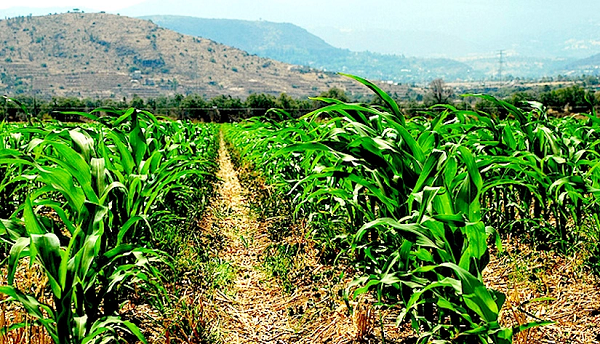
Conservation Agriculture mechanisation good for Ghana’s future – experts
The Ministry of Food and Agriculture (MOFA) in collaboration with the Food and Agriculture Organisation (FAO) has called for an urgent adoption of Conservation Agriculture (CA) mechanisation in Ghana to help the country boost its food production whilst increasing the sector’s contribution to the country’s Gross Domestic Product (GDP).
This follows the continue decline of the agricultural sector’s contribution to the GDP from 50 per cent in the 1980s to 18.5 per cent in 2019, owning to increasing land degradation and contamination of the natural environment coupled with the impact of climate change.
CA seeks to minimise soil disturbance for proper environment for seed germination and seedling establishment (reduced or no tillage) in order to preserve soil structure, improve soil health, reduce runoff, limit the extent of erosion and promote certain economic and environmental benefits.
Conference of experts
Speaking at the opening session of a two-day conference of experts and practitioners on status and progress of CA mechanisation in Ghana in Accra on Tuesday, January 19, 2021, the Deputy Director and Head of Environment and Climate Change Unit of the MOFA, Mr Kingsley Amoakoh, said, “Mechanisation plays a critical role in adoption and practice of CA, particularly in the area of land preparation and management.”
He added that the ability to carry out field activities such as land preparation and planting with minimum soil disturbance depends on the availability and design of appropriate equipment.
For him, minimum soil disturbance is one of the key pillars in CA and provides numerous benefits such as enhancing soil structure, reducing vulnerability of soil to erosion, leading to increased availability of soil nutrients for plant uptake.
Mr Amoakoh, however, expressed the worry that despite the various benefits associated with CA, particularly minimum soil disturbance, “evidence shows that widespread adoption of CA practice such as minimum tillage is practically low due to unavailability of appropriate equipment and high cost associated with the acquisition of these equipment.”
That, he noted, smallholder farmers continue to have difficulties in making the necessary investments in CA, pointing out that in order to promote large scale adoption CA technologies such as minimum soil disturbance, the issue of availability and affordability of CA equipment to smallholder farmers needed to be addressed.
TCP
The conference, which was organised under the auspices of the Technical Cooperation Project (TCP) brought together experts from MOFA, FAO, academia, importers, local fabricators, manufacturers, and service providers.
The TCP, implemented in 11 districts in five regions, namely Volta, Greater Accra , Central, Ashanti, Upper West, and Northern regions by MOFA and FAO, seeks to contribute to sustaining increased productivity and minimise environmental degradation aimed at attaining zero hunger and resilient rural livelihoods.
The two-year project, which was started in 2018, is also expected to build capacity among local manufacturing and retail sector and related maintenance services.
Soil disturbance
Mr Amoakoh identified improper land preparation with agricultural machinery, inappropriate use of chemical fertilizers and pesticides by farmers as some of the main causes of land degradation and contamination of the natural environment in the country.
Citing a study by the Environmental Protection Agency (EPA) conducted in 2002, he said, an estimated 69 per cent of the total land surface of the country was prone to severe or very severe soil erosion; the main manifestation of land degradation in the country.
For him, the quality of soil plays a critical role in crop production, noting that “soil is the main medium on which crops are grown, which means the soil condition is an important determinant for crop production and productivity.”
Mr Amoakoh said in addition to food production, a healthy soil was important for the delivery of essential ecosystems services, including decomposition of organic matter, nutrient transformation, exchange and cycling, water infiltration, redistribution and filtering, along with climate regulation through carbon storage and cycling.
However, he noted, “declining soil fertility as a result of inappropriate land management practices is increasingly affecting soil resources and conditions in Ghana, thus undermining the growth potential of agricultural sector.”
FAO
In a speech read on behalf of the FAO’s Representative to Ghana, Mr Benjamin Adjei, said the conference was organised to draw on the experiences, expertise and knowledge of the participants to charting a path towards improving the status and promotion of sustainable agriculture through CA mechanisation experts.
For him, the conference serves “as an awakening call to revisiting the country’s approach to agriculture mechanisation as soil fertility and productivity are directly undermined by the kind of agriculture machineries and implements our farmers continue to use.”
“Indeed, having a second look at our agricultural mechanisation is becoming ever more important to addressing challenges of decreasing soil fertility amidst increasing impact of climate change on agriculture and food security,” he noted.
